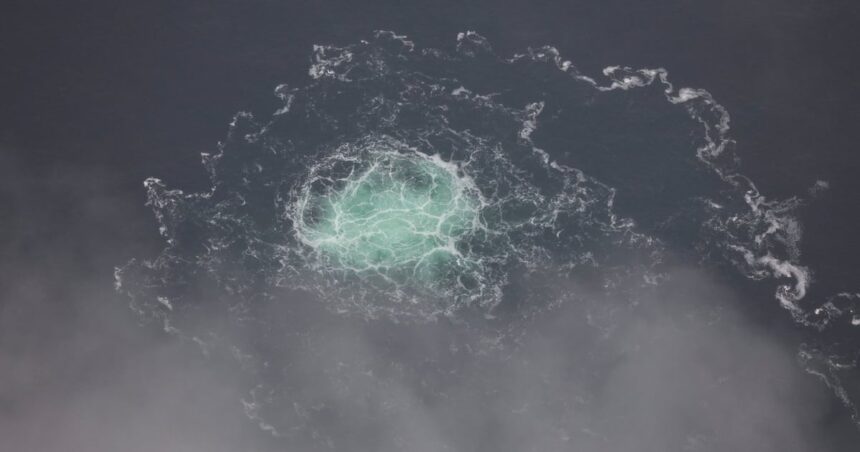In a significant breakthrough in one of Europe’s most perplexing sabotage cases, Polish authorities have detained a Ukrainian national suspected of involvement in the 2022 Nord Stream gas pipeline explosions. The arrest, confirmed Wednesday by Polish and German officials, marks the first publicly acknowledged detention in the high-profile investigation that has fueled diplomatic tensions since mysterious underwater explosions damaged the Russia-to-Germany pipelines in September 2022.
The suspect, identified only as a Ukrainian citizen, was apprehended following an arrest warrant issued by German federal prosecutors. According to Poland’s National Prosecutor’s Office, the individual was detained on February 22 and is currently awaiting extradition proceedings to Germany, where investigators have been leading a complex multinational probe into the pipeline attacks.
“This arrest represents a critical development in understanding who was behind this unprecedented attack on European energy infrastructure,” said Dr. Marianne Reitsch, director of the European Security Institute. “The Nord Stream sabotage has been a geopolitical puzzle that touches on energy security, international relations, and potential state-sponsored terrorism.”
The September 2022 explosions ruptured three of four lines of the Nord Stream 1 and 2 pipelines in the Baltic Sea, cutting off a major route for Russian gas to Europe. The damage occurred at a time of heightened tensions following Russia’s invasion of Ukraine, immediately triggering speculation about responsibility. Moscow promptly blamed Western nations, while many European security analysts pointed to potential Russian involvement in what appeared to be a sophisticated underwater operation.
German prosecutors allege the Ukrainian suspect participated in loading explosives onto a sailing yacht called “Andromeda,” which investigators believe was used in the sabotage operation. The vessel has been a central focus of the investigation since early 2023, when German media reported authorities had searched a boat suspected of transporting the sabotage team.
The case has been particularly sensitive for Western governments navigating complex relationships with both Ukraine and Russia. Some officials from European intelligence agencies have privately expressed concerns that rogue Ukrainian elements might have conducted the operation without official Kyiv authorization, potentially complicating international support for Ukraine’s defense efforts.
Ukrainian government officials have consistently denied any involvement in the pipeline explosions. Following news of the arrest, Ukraine’s foreign ministry spokesperson Heorhiy Tykhyi reiterated this position, stating: “Ukraine has nothing to do with the Nord Stream incident and has no information about any Ukrainian citizens who might be involved.”
Energy security experts emphasize the continuing significance of the case. “Even though the pipelines were not operational at the time due to Russia’s weaponization of energy supplies, the attack demonstrated a frightening vulnerability in critical undersea infrastructure,” said Catherine Martell, senior fellow at the Canadian Institute for Global Affairs.
The investigation has faced numerous challenges, including jurisdictional complications across multiple countries’ territorial waters and the technical difficulties of gathering evidence from the deep seabed. Swedish, Danish, and German authorities have each conducted separate investigations, sometimes with limited information sharing due to national security concerns.
For European energy markets, the Nord Stream explosions accelerated the continent’s pivot away from Russian energy dependency. “Europe had already begun reducing reliance on Russian gas following the invasion of Ukraine, but the pipeline explosions effectively sealed that transition,” notes Thorsten Weber, energy analyst at Deutsche Bank. “The economic implications continue to reshape European energy security planning.”
As the case moves toward potential prosecution, critical questions remain: Was this the work of a small group of operatives or part of a state-sponsored operation? And if evidence ultimately points to involvement by individuals connected to Ukraine, how will this impact Western military and financial support for a country still defending itself against Russian aggression?










